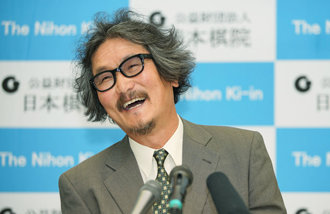[Editorial] `Work-Oriented` Govt Restructuring
[Editorial] `Work-Oriented` Govt Restructuring
Posted January. 15, 2008 06:37,
President-elect Lee Myung-bak said in his New Years news conference Monday that his top priority is to make an efficient and competent government. He also said he will reorganize government agencies, reshuffle major posts including those of the prime minister and the Cabinet, and adjust the roles of the presidential office and the Office of the Prime Minister. Lee is on the right path, since those plans are chiefly aimed at streamlining the government. If he can manage to reshuffle the Cabinet and reform agencies without thinking of elections or rewarding those who helped him get elected throughout his five-year tenure, the Lee administration will likely be remembered as successful.
On restructuring ministries, President-elect Lee said, We must make outdated organizations cut excess fat and tighten the screws on bloated organizations. I will not hesitate to merge overlapping functions and integrate split functions.
On matters that civilians can do better, I will let the private sector handle them, and on matters better handled by provincial governments, I will leave in the hands of provincial administrations.
In line with societal changes, the governments role must also change. The country cannot achieve development if the government persistently holds the rear legs of companies without keeping pace with changes in the private sector. A swollen state bureaucracy is the source of all problems. The government must carry out absolutely essential tasks only and assign the remainder to private hands. Advanced countries have long pursued a policy of small government, big market based on past experience.
The restructuring of government bodies involves sophisticated procedures. First, the role of the government and public servants must be clearly defined before any adjustment or integration of their functions. If restructuring merely ends up changing the outward appearance of the government, it will eventually fail. The number of public employees, which has spiraled out of control during the Roh Moo-hyun administration, must also be reduced. Government reform will be in name only unless the public labor force is reduced. If the immediate downsizing of public servants is difficult, the incoming administration must draw up a plan to gradually slim down the enlarged government.
Lee said, I assure you I will not appoint the prime minister or Cabinet members based on political motifs or with the general elections in mind. I will select and appoint people purely on the basis of who can get the job done. We hope he will not forget his original intention.
The Roh administration also displayed strong determination in the beginning. As time passed, however, it selected Cabinet members either to return political favors or help favored politicians build a sufficient career to run in elections. The incumbent administration has changed the education minister five times, with one even quitting his post to work for a presidential campaign camp. We hope the Lee administration will set a good precedent by spending the next five years with its original ministers, a practice seen in advanced nations.
On the role of the prime minister, Lee said, (He or she) will have a lot of work in a variety of areas, including energy diplomacy in the future, while visiting global markets. The prime minister will not be the presidents aide, but will instead assume an independent role and work on both domestic and international affairs. The government has repeatedly caused confusion because the roles of the Cabinet and the prime minister have not been specifically defined. This is one reason why the prime minister is often referred to a dummy prime minister or a real prime minister in Korea. People look forward to seeing a new model for the post, so that he or she can spearhead the constantly changing society.
Lee also said his administration will work closely with the Cabinet, but that the role of the presidential office of Cheong Wa Dae will be limited to coordination. He should put an end to the so-called imperialistic presidency, in which Cheong Wa Dae meddles in every matter and rules over the Cabinet.







